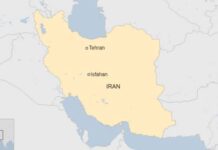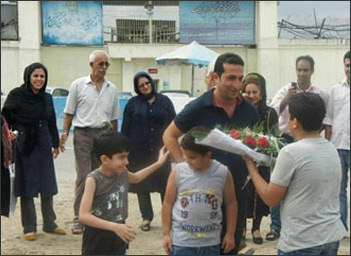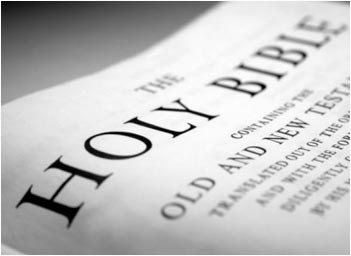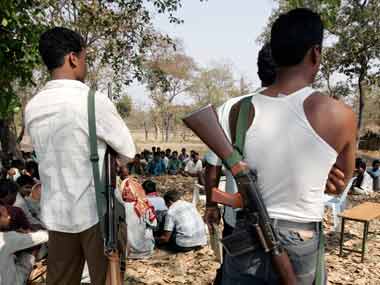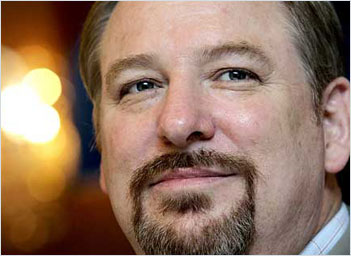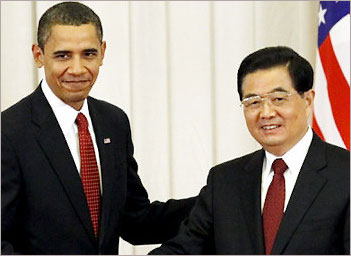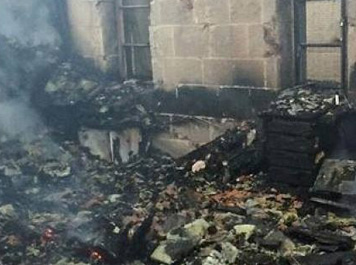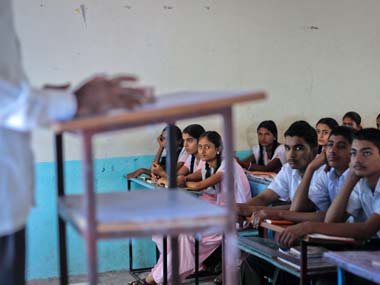
IS there more than what meets the eye to the letters issued by a couple of district administrations in Chhattisgarh to the principals of schools run by the Christian missionaries, in which they ordered them to stop the practice of students addressing them as ‘Father’? The letters said principals and teachers were to be addressed as ‘Sir’ or ‘Pracharya’.
One of the districts, The Indian Express reported, has withdrawn the controversial order. The collector of Mahasamund, according to the newspaper, said “the order was issued by mistake”.
The matter would be inconsequential, but for the fact that in one of the districts the letter was marked to the local VHP office too. The local Bajrang Dal chief in Mahasamund claimed that the action was taken on a demand made to the collector by his organization and Sangh Parivar affiliates have been making a similar demand for some time now. Add to that the looming presence of the Sangh Parivar in the state.
“Father is an address to the teacher that is used the world over and has not been found objectionable anywhere. Why then in Chhattisgarh only it is being used to target a particular community?” Bhupesh Baghel, the president of the state Congress Committee said.
“The RSS is making the state government the tool to implement its agenda” he said.
Devendra Bahadur Singh, an ex-minister and MLA from Mahasamund district, said he never heard any complaints from the children or their parents about the practice of calling their teachers ‘Father’.
Hardly any political leader in the state finds the letters surprising though, as they have been raising their concern over the increasing influence of the RSS and other affiliates over the administration for some time now.
The state government courted major controversy in February this year when it tinkered with the decades old civil services rule book. The rules, adopted almost ad verbatim from the rule book of Madhya Pradesh, continues to prohibit a government servant from taking part in politics.
The state government, brought the near forgotten rules into the limelight when it issued a notification with the subject line “regarding participation of government servants in activities of RSS”, and said that “as far as Rule 5(1) of Chhattisgarh Civil Services (Conduct) Rules 1965 is concerned, its restriction does not apply to RSS”. Put simply, it allowed its employees to join the RSS and to work and donate for it.
The Congress made headlines by creating a ruckus in the state assembly over the issue.
“Under our system of governance, a government official is not only supposed to remain impartial and non-aligned in his public dealings, one should also appear to be so in the public image. The knowledge of the officer’s association and sympathies with the RSS, which is the parent body of the ruling party, is bound to adversely affect the public perception,” Baghel said.
The rule has been there for decades. Umpteen instances of its violations, and past Congress regimes looking the other way, abound. It wouldn’t be wrong to say that the state government, even past Congress regimes, dithered on taking a stand against the violation of its own rules for its employees or defining the political nature of the RSS in clear terms.
Take, for example, the case of Rajendra Prasad Modi. In 1954 he was adjudged the best NCC cadet of the country after the Republic Day parade in Delhi and handed the prize by Pandit Nehru. He was sent to England as the leader of the delegation of cadets where he met and earned the praise of the legendary Field Marshal Montgomery. On his return to India, when he wanted to be an officer with the Indian Army, the interview was a cake walk.
A near-celebrity and a youth icon in his home state of Madhya Pradesh by then, the history of his association with the RSS ruined his prospects. Before he could join the services, an intelligence report played spoilsport and his appointment letter was withdrawn at the last moment. The civil service conduct rules did not allow an employee to a member of a political outfit, and the RSS was considered one such unit then.
Within months, a post fell vacant in the state police department and the Congress chief minister, fully aware of his background and the reasons behind his disqualification for an earlier government job, offered him the post which he accepted and he rose to the rank of Inspector General before retiring from the services.
State employees supporting the RSS have been known to take part in the activities of the organization, both overtly and covertly, for many years. Yet there is no evidence of the government acting against any one for the ‘crime’ of taking part in a political activity.
“The tendency to ‘overlook’ the ‘crime’ has remained a standard feature of all the Congress-led governments in the state. Mr. RP Modi’s case was overt, not exceptional” said a retired bureaucrat.
“The crux of the confusion is the inability of the government to clearly define politics,” said a senior serving official.
The Congress never stopped calling the RSS a political outfit and the RSS never ceased to reiterate its claim of being a social service organization. The war of words has continued.
With a friendly government in power, the RSS and its affiliates have been taking full advantage of it. The Christian community has always been a soft target for the BJP and RSS in the state. Health and educational institutions run by the community, in particular, are viewed with suspicion by the latter. Last year, the VHP put intense pressure on the missionary schools to have the photographs of deity Saraswati installed in classrooms besides saying that the principal and vice-principal must be called acharya and up-acharya instead of ‘Father’. Given this backdrop the letters issued by the district administrations could be more than just a lapse. Parivesh Mishra in FirstPost





